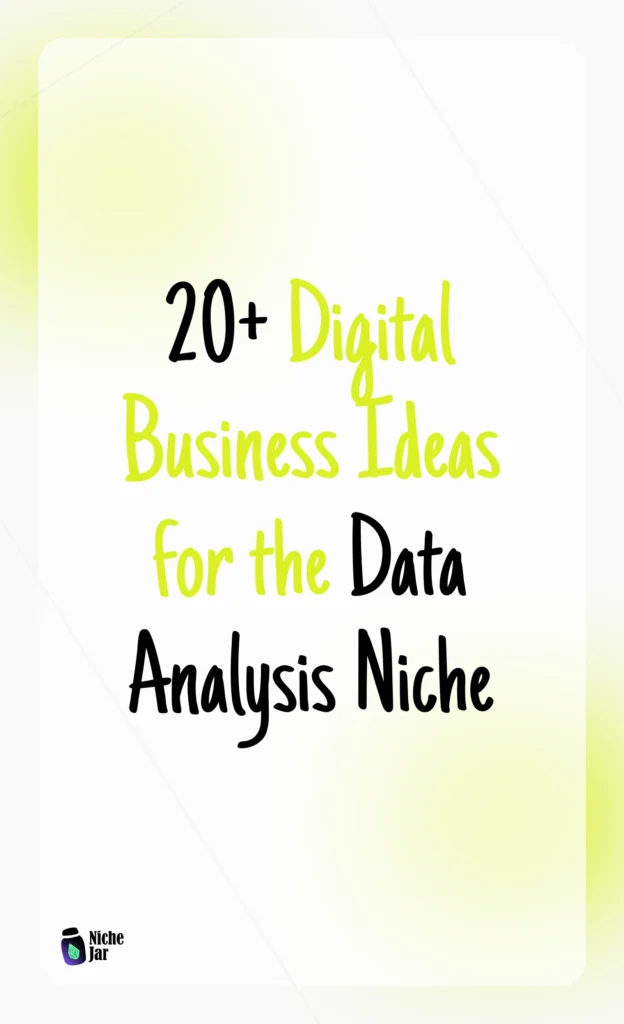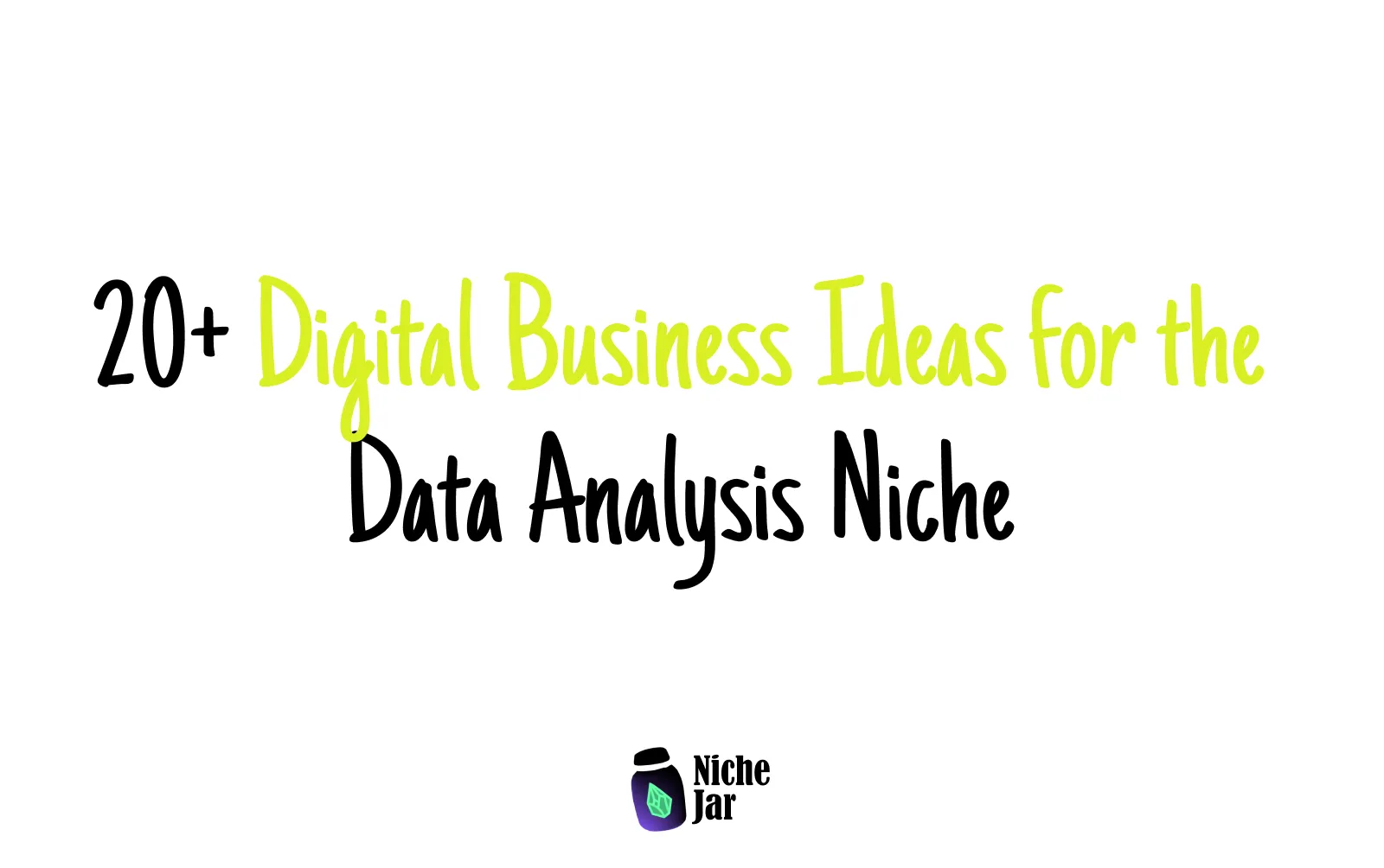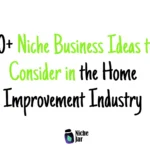- Senia
- 0 Comments
- 2726 Views
Have you ever wondered how many opportunities exist in the data world beyond big corporations? The truth is, data isn’t just for tech giants—it’s also a growing space for small entrepreneurs. In this guide, we’ll explore 20+ digital business ideas for the data analysis niche, with practical ways you can start small and grow at your own pace.
From what I’ve seen, data analysis has quietly become one of the most profitable digital niches today. Every business, no matter the size, needs data to make smarter decisions. It could be as simple as a café tracking which menu items sell best or a small online shop trying to understand customer behavior. That’s why the data analysis niche is no longer just for big firms—it’s now open to freelancers, small businesses, and creative entrepreneurs who are willing to learn and apply the basics.
The beauty of this niche is that it doesn’t require a huge upfront investment. Many data analysis business ideas can be started with a laptop, an internet connection, and some willingness to learn tools like Excel, Google Analytics, or Python. Of course, success doesn’t come overnight. It takes effort to find the right niche, build trust with clients, and grow your skills. But I believe this industry offers everyday people a real chance to create something profitable and meaningful.
In this post, I’ll share 20+ digital business ideas for the data analysis niche. For each idea, you’ll find:
- Why it’s profitable and in demand.
- A simple step-by-step guide to start.
- Common challenges and humble solutions.
- Estimated startup costs and monetization options.
- Small case studies or examples to make it feel realistic.
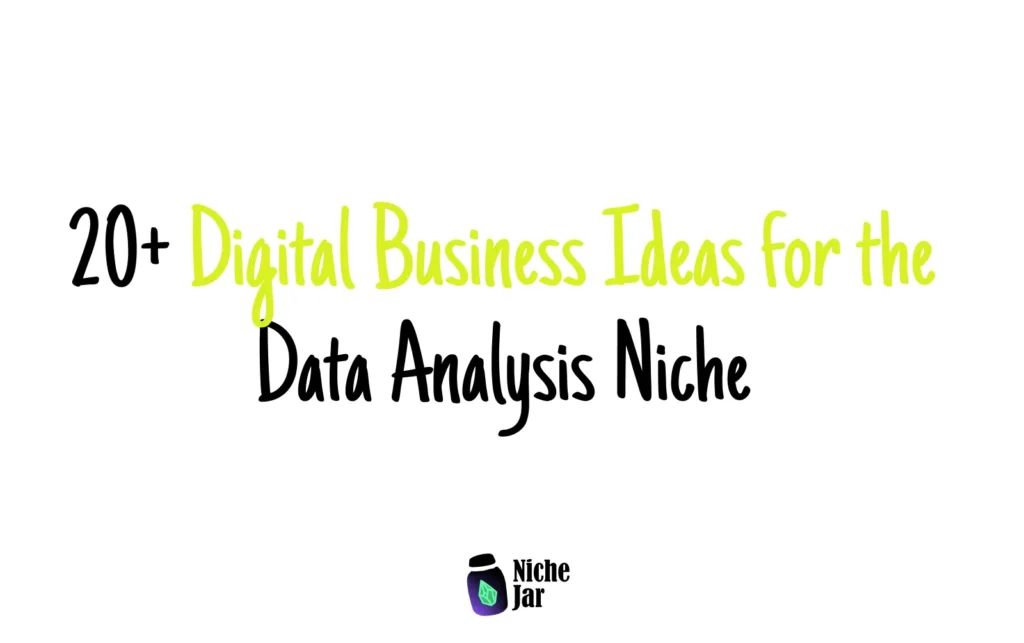
Let’s dive into the ideas and see where you might find your fit.
1. Freelance Data Analysis Services
Offering freelance data analysis services is one of the most direct ways to start. Businesses often collect data but don’t have the in-house expertise to interpret it.
Why it’s profitable: Companies want to cut costs by outsourcing. Freelancers can charge $25–$100 per hour depending on skills.
How to start:
Learn tools like Excel, Python (Pandas), or R.
Create profiles on platforms like Upwork or Fiverr.
Start with small gigs and build a portfolio.
Challenges & solutions: It’s competitive. To stand out, specialize (e.g., “data analysis for e-commerce stores”).
Startup cost: $0–$200 (mostly software or training).
Monetization: Hourly projects, recurring clients.
Example: A freelancer helping small Shopify store owners analyze sales to boost product listings.

2. Data Visualization Consulting
Description: Help businesses transform raw numbers into clear charts and dashboards.
Insights: Good visuals make data actionable, which is why tools like Tableau and Power BI are in demand.
Steps to Start:
- Learn 1–2 visualization tools.
- Build sample dashboards from public datasets.
- Pitch services to local small businesses.
Challenges & Solutions: Some clients undervalue visuals—show them “before and after” dashboards.
Startup Costs: $200–$1,000.
Monetization: Per-dashboard pricing, consulting retainers.
Case Study: A consultant created interactive dashboards for a local retailer, leading to ongoing work.
3. Business Intelligence Dashboards
Description: Specialize in creating BI dashboards for sales, marketing, or operations.
Insights: Many growing businesses struggle with scattered data. Central dashboards help.
Steps to Start:
- Offer integration of tools like Google Analytics + CRM.
- Focus on one niche (e.g., e-commerce or logistics).
- Provide training for clients after setup.
Challenges & Solutions: Can be technical—start small with Google Data Studio.
Startup Costs: $500–$2,500.
Monetization: Setup fees + monthly support.
Case Study: A small BI firm built dashboards for three Shopify stores and now earns steady monthly retainers.
4. E-commerce Analytics Support
Description: Provide insights into sales funnels, conversions, and customer behavior.
Insights: Online shops rely heavily on analytics to increase profits.
Steps to Start:
- Learn Google Analytics 4 and Shopify analytics.
- Offer conversion rate optimization (CRO) audits.
- Provide monthly sales reports.
Challenges & Solutions: E-commerce is competitive—niche down to specific industries like clothing or handmade goods.
Startup Costs: $300–$1,000.
Monetization: Monthly reporting, optimization packages.
Case Study: A freelancer helped a small clothing brand improve checkout rates by 15%.
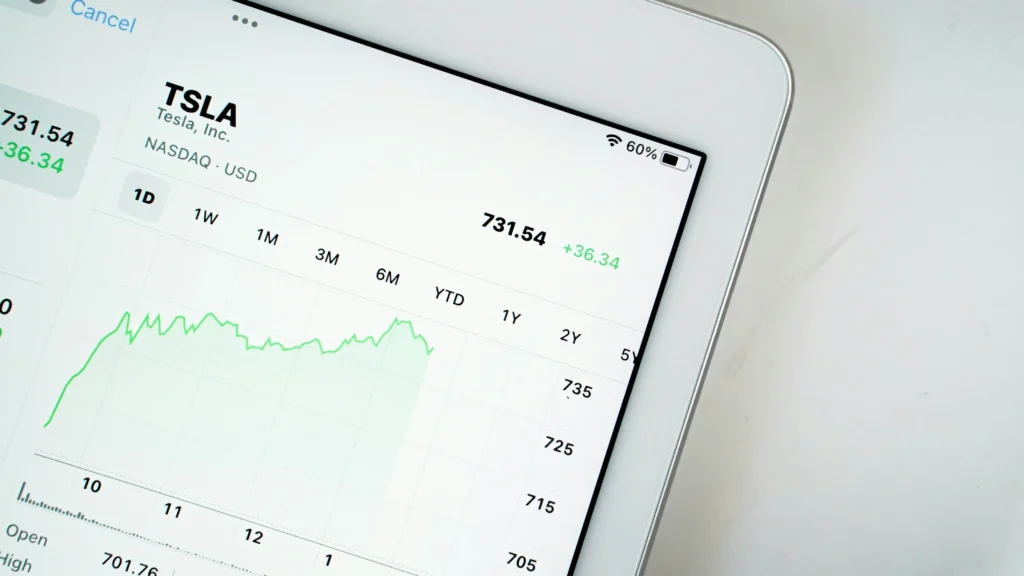
5. Social Media Analytics Services
Description: Analyze engagement data to improve social strategies.
Insights: Small brands often post blindly without checking results.
Steps to Start:
- Use free tools like Meta Insights or paid ones like Sprout Social.
- Offer simple monthly “what works, what doesn’t” reports.
- Upsell with strategy recommendations.
Challenges & Solutions: Data can be overwhelming—keep reports simple.
Startup Costs: $100–$500.
Monetization: Monthly packages, one-time audits.
Case Study: A freelancer grew by analyzing Instagram engagement for local cafés.
6. AI-Powered Data Tools
Artificial intelligence can help businesses automate data analysis. Creating or customizing AI tools for specific industries is a powerful business idea.
- Why it’s profitable: AI saves time and uncovers patterns faster than humans. Businesses pay for speed and accuracy.
- Steps to start:
- Learn basic machine learning (using Python libraries like scikit-learn).
- Focus on one industry problem (e.g., predicting customer churn).
- Package your tool as a simple app or script.
- Challenges: Building full AI systems can be overwhelming. Start small with pre-built models.
- Startup cost: $200–$1,000 (cloud hosting, developer time).
- Monetization: Subscription fees, custom projects.
- Example: AI script predicting which online store customers are likely to cancel subscriptions.
7. Online Data Analysis Courses
Teaching beginners how to analyze data is always in demand.
- Market insight: Platforms like Udemy show thousands of students enrolling in Excel, SQL, and Python courses.
- Steps to start:
- Choose a topic (Excel basics, Python for beginners).
- Record short lessons with free screen-recording software.
- Publish on Udemy, Skillshare, or your own site.
- Challenges: Competition is high. Stand out by focusing on a niche (e.g., “Excel for restaurant owners”).
- Startup cost: $50–$300 (microphone, editing software).
- Monetization: Course sales, memberships.
- Case study: Instructor earning $1,000/month from a beginner-friendly SQL course.
8. YouTube Channel or Blog on Data Tips
Sharing free tips attracts an audience you can later monetize.
- How to start:
- Pick a consistent content style (e.g., tutorials, case studies).
- Post weekly content.
- Use SEO-friendly titles like “How to clean messy data in Excel.”
- Challenges: Growth takes time. Consistency builds momentum.
- Startup cost: $0–$200 (camera/microphone).
- Monetization: Ads, sponsorships, affiliate links, paid templates.
- Example: Small YouTube channel teaching Excel shortcuts grew to 30,000 subscribers and sells templates.

9. Analytics for E-commerce Stores
E-commerce owners often struggle with sales and customer data.
- Why it works: Shopify, WooCommerce, and Amazon sellers need actionable insights.
- Steps:
- Specialize in one platform.
- Offer store performance reports.
- Suggest practical changes (optimize top-selling products, reduce cart abandonment).
- Challenges: Some store owners expect instant results. Clarify timelines.
- Startup cost: $100–$500 (platform integrations).
- Monetization: Monthly reporting services or one-time audits.
- Case study: Freelancer helping a Shopify seller identify profitable products boosted sales by 20%.
10. Data-Backed Financial Planning Services
Data analysis can strengthen personal and business financial decisions.
- Steps to start:
- Create spreadsheet models for budgeting, forecasting, or investment tracking.
- Work with individuals or small businesses.
- Challenges: Regulations—make it clear you’re offering analysis, not legal financial advice.
- Startup cost: $50–$200.
- Monetization: Consulting fees, spreadsheet sales.
- Example: Analyst offering small-business cash flow reports via Excel templates.
11. Custom Scripts & Automation Tools
Automating repetitive tasks saves companies hours each week.
- How to start:
- Learn Python or R scripting.
- Build small tools (e.g., automatic sales report generator).
- Sell as a package or service.
- Challenges: Some users may struggle to install scripts—offer simple documentation.
- Startup cost: $0–$300.
- Monetization: One-time fees, ongoing support subscriptions.
- Example: Developer selling a $50 script that cleans CSV files automatically.
12. Subscription-Based Reports
Offer recurring insights to businesses in specific industries.
- Why it’s profitable: Predictable monthly income.
- Steps:
- Pick a niche (real estate, fitness, online sales).
- Collect and analyze relevant data.
- Deliver monthly or quarterly reports.
- Challenges: Data sourcing can be tricky—use public datasets.
- Startup cost: $100–$400.
- Monetization: Subscription packages ($50–$500/month).
- Case study: Small firm selling monthly local housing market analysis to real estate agents.

13. Data Cleaning & Preparation Services
Raw data is messy. Offering cleaning services saves time for analysts and businesses.
- Steps to start:
- Offer services like deduplication, missing value handling, or formatting.
- Advertise on freelance sites.
- Challenges: It’s often undervalued. Market it as a “time-saving service.”
- Startup cost: $0–$150.
- Monetization: Hourly rates, bulk data packages.
- Example: Freelancer cleaning messy survey results for universities.
14. Market Research Analysis
Businesses need competitive and consumer insights.
- Steps:
- Collect competitor data, customer surveys, or public statistics.
- Provide reports on market trends.
- Challenges: Avoid over-promising—market predictions are never perfect.
- Startup cost: $100–$500.
- Monetization: Report sales, consulting.
- Case study: Consultant offering “market research packs” to small startups at $300 each.
15. Data Storytelling Consulting
Numbers mean little without clear stories. Help businesses craft compelling data-driven presentations.
- Steps:
- Focus on visualization + storytelling.
- Create slide decks or infographics.
- Challenges: Requires creativity as well as technical skills.
- Startup cost: $100–$400.
- Monetization: Consulting fees, presentation templates.
- Example: Consultant creating fundraising pitch decks for nonprofits using donor data.
16. Predictive Analytics Services
Help businesses forecast trends using historical data.
- Steps:
- Use tools like Python, R, or Power BI.
- Specialize in one use case (e.g., predicting sales).
- Challenges: Predictions are not guarantees—manage client expectations.
- Startup cost: $300–$1,000.
- Monetization: Retainers, one-time projects.
- Example: Consultant helping a clothing store predict demand for seasonal products.

17. Analytics for Social Media Influencers
Influencers need help understanding engagement and audience trends.
- Steps:
- Offer Instagram/TikTok/YouTube analytics reports.
- Show what content performs best.
- Challenges: Platforms change algorithms often. Stay updated.
- Startup cost: $50–$200 (tools like Social Blade or analytics software).
- Monetization: Monthly packages, one-time audits.
- Example: Analyst charging $200/month to help influencers improve brand deals with better data.
18. SEO & Website Data Consulting
Help businesses use Google Analytics and Search Console data effectively.
- Steps:
- Audit website traffic sources.
- Provide actionable SEO insights.
- Challenges: SEO is competitive—focus on small/local businesses.
- Startup cost: $200–$500.
- Monetization: Consulting retainers, one-time audits.
- Case study: Consultant improving a local bakery’s website ranking by analyzing visitor data.
19. Real Estate Data Analysis Services
Property investors and agents rely on location and pricing data.
- Steps:
- Collect public housing and rental data.
- Create reports on profitable areas.
- Challenges: Data may vary by region—focus on one city/market.
- Startup cost: $100–$300.
- Monetization: Subscription reports, one-time consulting.
- Example: Analyst selling $99 reports to real estate agents on local trends.
20. Data Analysis for Nonprofits
Nonprofits often lack resources but need clear insights for funding and operations.
- Steps:
- Offer donor data analysis, event performance, or impact measurement.
- Focus on clarity and storytelling for fundraisers.
- Challenges: Budgets are tight—consider discounted rates or grants.
- Startup cost: $50–$200.
- Monetization: Sliding-scale consulting, grants, partnerships.
- Example: Consultant helping a small charity analyze volunteer hours to improve efficiency.

21. Bonus Ideas
Alt text suggestion: “Podcast microphone with analytics chart – alt: data analysis podcast idea.”
Podcast on data insights – monetize via sponsorships.
Templates marketplace – sell bundles of dashboards or spreadsheets.
Mini SaaS tool – build a lightweight online app for recurring income.
From what I’ve seen, the data analysis niche is wide open for everyday people willing to learn and experiment. You don’t need a PhD or a giant team—you just need persistence and a willingness to start small. Each idea here, whether it’s freelancing, creating dashboards, or building a blog, has the potential to grow into something meaningful.
Remember, every journey starts small. You might begin with one client, one report, or one blog post, but over time those small steps can add up. If one of these ideas sparks interest, I’d encourage you to explore it further. And if you’d like more guidance on finding profitable niches, there are plenty of other resources here on Nichejar.com.
I’d love to hear from you—what idea stands out the most? Feel free to share your thoughts or experiences. And above all, keep going, even if progress feels slow. In this niche, consistency often pays off more than speed.
TLDR
In short:
- Freelance Data Analyst Services – Offer affordable reports and insights.
- Data Visualization Consulting – Turn raw numbers into visuals.
- Business Intelligence Dashboards – Help businesses centralize their data.
- E-commerce Analytics Support – Boost sales with better data use.
- Social Media Analytics Services – Show brands what’s working online.
- Many other niches exist, from healthcare to sports analytics.
- Most require low startup costs and can be scaled gradually.
